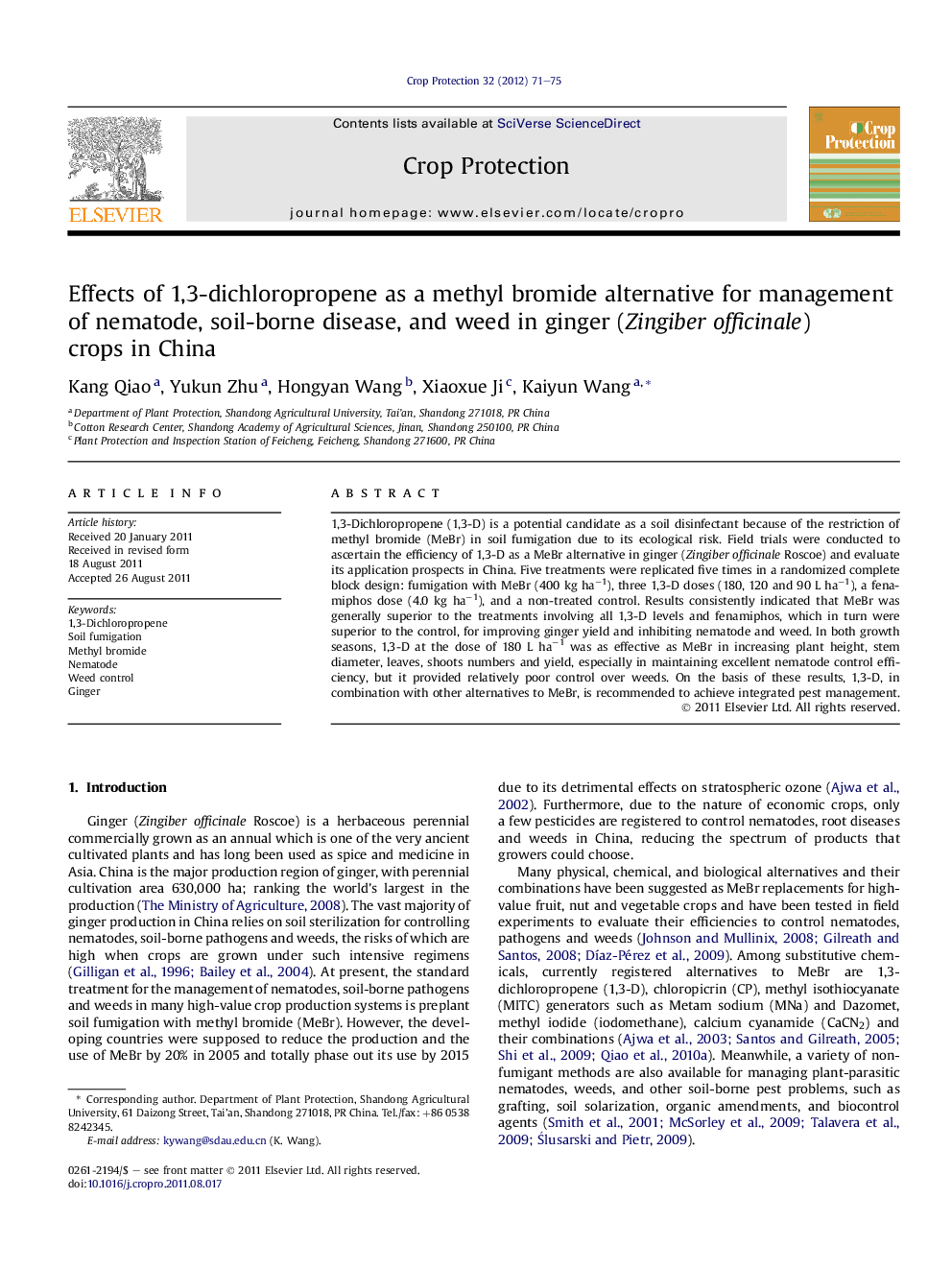| Article ID | Journal | Published Year | Pages | File Type |
|---|---|---|---|---|
| 4506451 | Crop Protection | 2012 | 5 Pages |
1,3-Dichloropropene (1,3-D) is a potential candidate as a soil disinfectant because of the restriction of methyl bromide (MeBr) in soil fumigation due to its ecological risk. Field trials were conducted to ascertain the efficiency of 1,3-D as a MeBr alternative in ginger (Zingiber officinale Roscoe) and evaluate its application prospects in China. Five treatments were replicated five times in a randomized complete block design: fumigation with MeBr (400 kg ha−1), three 1,3-D doses (180, 120 and 90 L ha−1), a fenamiphos dose (4.0 kg ha−1), and a non-treated control. Results consistently indicated that MeBr was generally superior to the treatments involving all 1,3-D levels and fenamiphos, which in turn were superior to the control, for improving ginger yield and inhibiting nematode and weed. In both growth seasons, 1,3-D at the dose of 180 L ha−1 was as effective as MeBr in increasing plant height, stem diameter, leaves, shoots numbers and yield, especially in maintaining excellent nematode control efficiency, but it provided relatively poor control over weeds. On the basis of these results, 1,3-D, in combination with other alternatives to MeBr, is recommended to achieve integrated pest management.
► It is the first time providing data on the MeBr alternative in ginger in China. ► Practical data were provided for evaluating application prospect of 1,3-D in China. ► Our work will be beneficial to the register of 1,3-D in China. ► Our study adds significant information from ginger trials in China.
